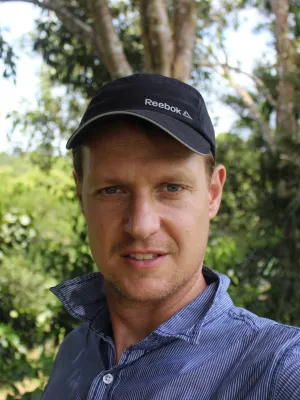
Torsten Krause
Senior Lecturer, Director of PhD Studies

Governance and stakeholder perspectives of managed re-alignment: adapting to sea level rise in the Inner Forth estuary, Scotland
Author
Summary, in English
With climate change, coastal areas are faced with unprecedented sea level rise and flooding, raising questions as to how societies will choose to adapt. One option is to strengthen existing sea walls to maintain current land uses; however, scientists, policy-makers and conservationists increasingly see the benefits of managed realignment, which is a nature-based coastal adaptation that involves the conversion of reclaimed farmland back to wetlands, allowing periodic local flooding in designated areas to reduce the risk of flooding downstream. We interviewed 16 local organisations, landowners and farmers and held workshops with 109 citizens living the Inner Forth estuary in eastern Scotland, to examine how managed realignment is supported by stakeholder attitudes and their engagement. Most of the farmers we interviewed prefer strengthened sea walls, to maintain their livelihoods and agricultural heritage. Citizens and local organisations were mainly supportive of managed realignment, because it provided wildlife and flood regulation benefits. However, we identified several barriers that could present obstacles to implementing managed realignment, for example, uncertainty whether it would support their principles of economic and rational decision-making. Our findings suggest that the local capacity to cope with rising sea levels is limited by lack of engagement with all relevant stakeholder groups, the limited scope of existing stakeholder partnerships and poor short-term funding prospects of landscape partnerships that would facilitate collaboration and discussion. We suggest that including citizens, landowners, farmers and industries would strengthen existing stakeholder deliberation and collaboration, and support the Inner Forth’s transition towards a more sustainable future shoreline.
Department/s
- LUCSUS (Lund University Centre for Sustainability Studies)
- BECC: Biodiversity and Ecosystem services in a Changing Climate
Publishing year
2019-05-22
Language
English
Pages
2231-2243
Publication/Series
Regional Environmental Change
Volume
19
Issue
8
Document type
Journal article
Publisher
Springer
Topic
- Earth and Related Environmental Sciences
Status
Published
ISBN/ISSN/Other
- ISSN: 1436-378X